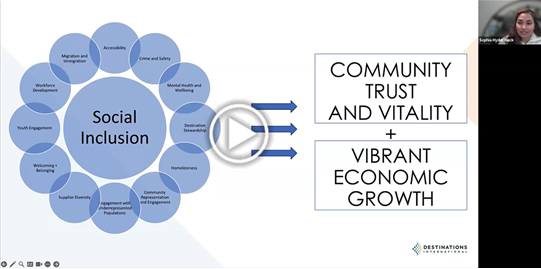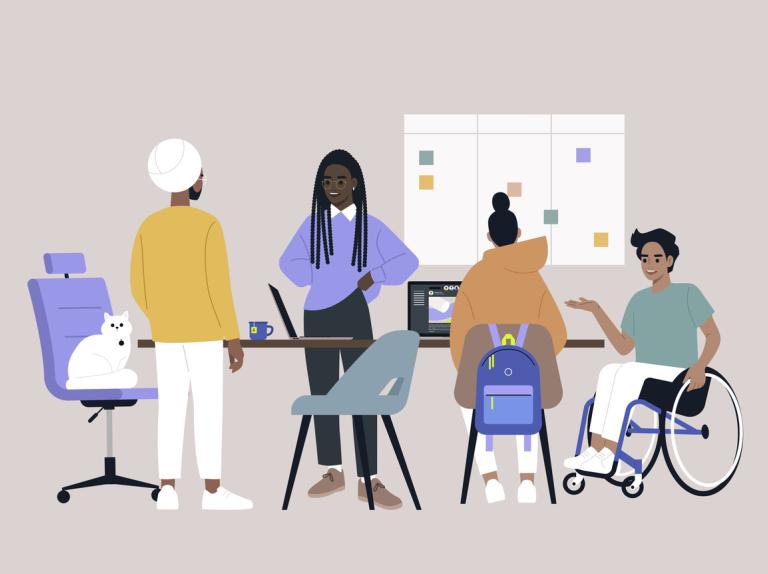
Andreas Weissenborn and Sophia Hyder Hock recap the findings from the inclusion assessment tool's inaugural launch and offer insights on how destination members are using the data.
Highlights from our findings in 2023
In 2022, Destinations International created an assessment tool for destination organizations to evaluate their equity, diversity, and inclusion (EDI) initiatives. Years in the making, the tool aims to help create a welcoming environment for staff, the community, and visitors by evaluating internal and external inclusion practices.
The tool is now available for destination organizations worldwide to enter data for their 2023 initiatives. Here’s a snapshot of how our sector performed in the previous year.
A recap of the results from our inaugural year:
Insight #1: Size doesn’t always matter.
The platform provides the ability to slice and dice the data according to budget, FTE, geography, tourism asset, and more to mix and match a comparable data set to your destination organization. This feature exists for all question segments within the platform. When we broke down the data via size (operating budget), we were surprised to see which sections seem to be influenced by operating budget and those which have no bearing on it.
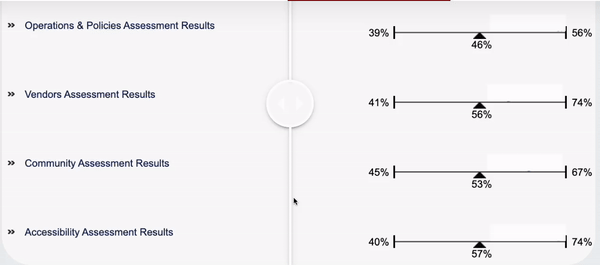
Insight #2: We need to start in the workplace.
Upon reviewing data per each section of the assessment, workplace-related responses need improvement. Our destination organizations need to invest more time in developing their internal culture of inclusion. Destinations can begin by defining what inclusion means as a team, providing strong leadership support by communicating how an inclusive culture is being established and offering opportunities for teams to provide feedback on the kind of culture they would like to create for each other.
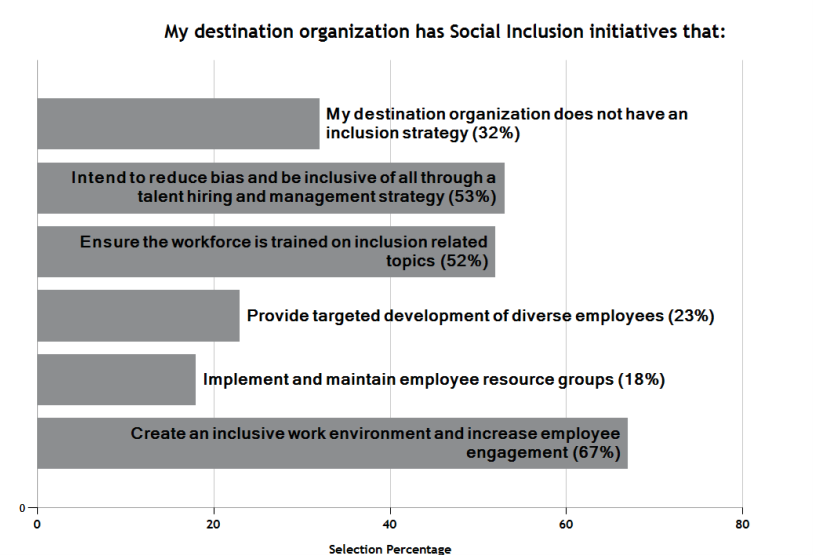

Insight #3: Becoming accessible to accessibility.
Results from the inaugural year of this assessment show destinations need a clear accessibility strategy. The assessment questions cover multiple aspects of accessibility, from website enhancements to physical accommodations and representation in marketing channels. As a starting point, our leading practices suggest that destinations should begin with accessibility-related training to bring awareness on how to support people with disabilities in a proactive and respectful manner.
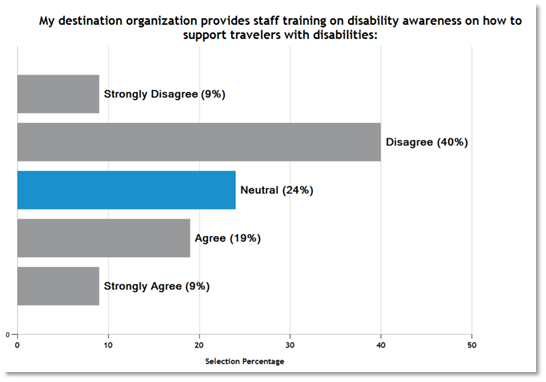
2024 Updates:
Our team, alongside the EDI Committee, collected user feedback to modify the second iteration of this tool; the highlights are listed below:
- The name of the tool has changed from the ‘EDI Assessment Tool” to the “Social Impact Assessment Tool” due to the addition of the destination stewardship section, and more thought has been placed upon the goal of this tool – to help our destinations create intentional impact for their staff, community, and visitors.
- This is a global tool that can be used by any destination organization worldwide.
- Board governance and destination stewardship sections have been added to the tool.
- The accessibility section has been updated and expanded.
- Entering data has always been free, and the basic report is now also free.
Why this tool is important for your destination:
A destination’s brand is a key factor in the vitality of its economy, and importance must be placed on creating a safe and welcoming environment. Data from this tool serves as an asset for destination organizations to distinguish themselves and their inclusion story to meeting planners who have been holding more destinations accountable to their welcoming standards. We have included examples of how destinations have used information from their assessment reports:
- Formalized their inclusion efforts
- Added inclusion initiatives to their annual plans
- Compared current practices to determine where improvements need to be made and to celebrate wins with their team members
- Provided progress updates to their board
- Developed an action plan and key performance indicators
- Created team discussions on how to connect and strengthen community connections
While we are thrilled that over 200 destinations took part in the assessment tool last year, we believe our sector can do a better job of creating a more inclusive industry where people of all backgrounds and abilities feel welcome in their communities at home and during their travels to other destinations.
Your call to action:
This platform was designed for all member sizes and locations; we encourage all our members to use this platform and to reach out to our team if any questions arise.
Resources on how to get started:
Watch this webinar to learn about the new features of this platform.
Learn more about the Social Impact Assessment Tool and get started here.
We would like to thank the Destinations International Foundation for supporting the development of this assessment tool and the EDI Committee's dedication to making this industry more inclusive to all.


